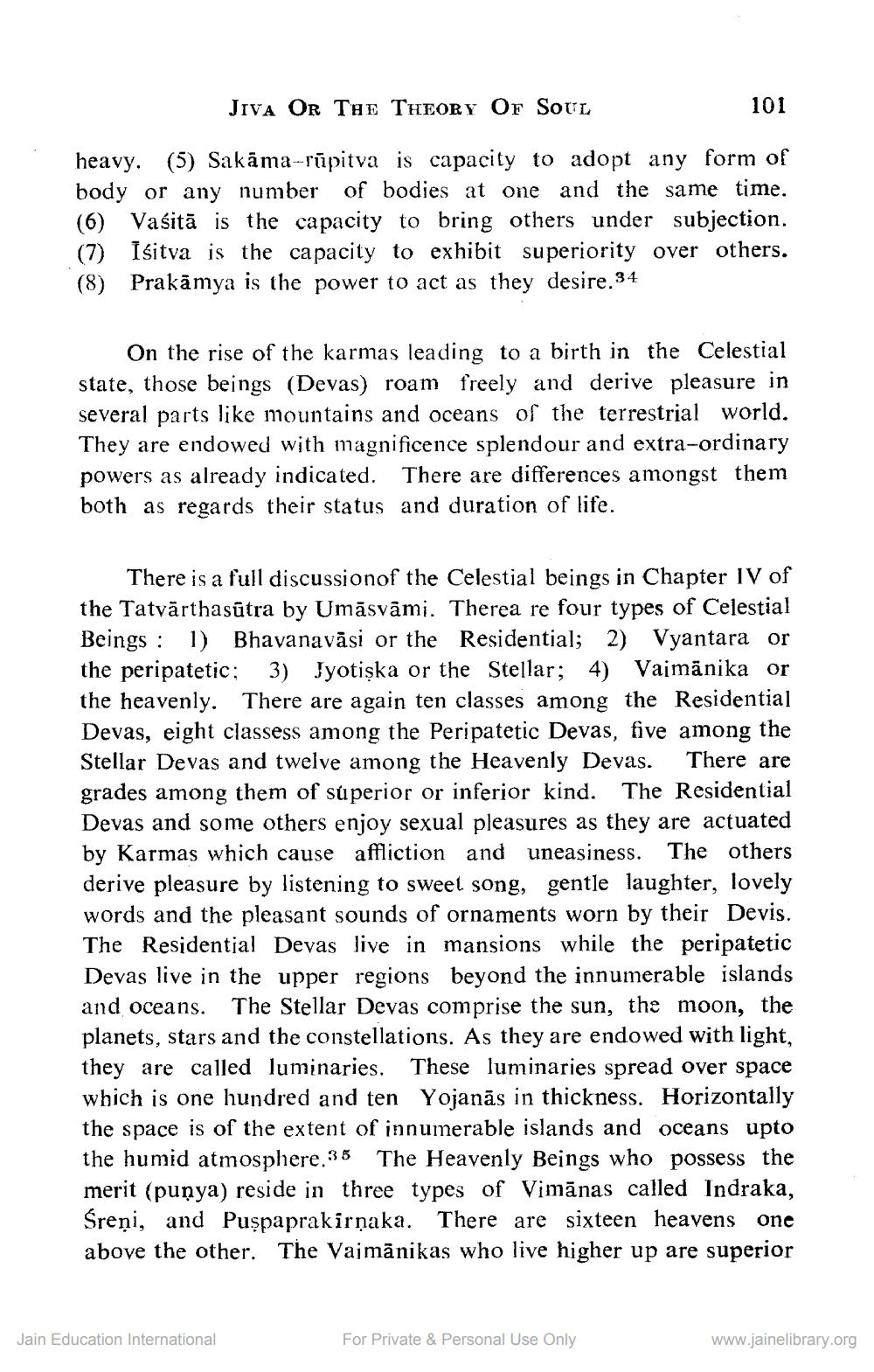________________
JIVA OR THE THEORY OF SOUL
101
heavy. (5) Sakāma-rūpitva is capacity to adopt any form of body or any number of bodies at one and the same time. (6) Vasitā is the capacity to bring others under subjection. (7) Išitva is the capacity to exhibit superiority over others. (8) Prakāmya is the power to act as they desire.34
On the rise of the karmas leading to a birth in the Celestial state, those beings (Devas) roam freely and derive pleasure in several parts like mountains and oceans of the terrestrial world. They are endowed with magnificence splendour and extra-ordinary powers as already indicated. There are differences amongst them both as regards their status and duration of life.
There is a full discussionof the Celestial beings in Chapter IV of the Tatvārthasūtra by Umāsvāmi. Therea re four types of Celestial Beings : 1) Bhavanavāsi or the Residential; 2) Vyantara or the peripatetic; 3) Jyotiska or the Stellar; 4) Vajmänika or the heavenly. There are again ten classes among the Residential Devas, eight classess among the Peripatetic Devas, five among the Stellar Devas and twelve among the Heavenly Devas. There are grades among them of superior or inferior kind. The Residential Devas and some others enjoy sexual pleasures as they are actuated by Karmas which cause affliction and uneasiness. The others derive pleasure by listening to sweet song, gentle laughter, lovely words and the pleasant sounds of ornaments worn by their Devis. The Residential Devas live in mansions while the peripatetic Devas live in the upper regions beyond the innumerable islands and oceans. The Stellar Devas comprise the sun, the moon, the planets, stars and the constellations. As they are endowed with light, they are called luminaries. These luminaries spread over space which is one hundred and ten Yojanās in thickness. Horizontally the space is of the extent of innumerable islands and oceans upto the humid atmosphere.35 The Heavenly Beings who possess the merit (punya) reside in three types of Vimānas called Indraka, Śreņi, and Puşpaprakirņaka. There are sixteen heavens one above the other. The Vajmānikas who live higher up are superior
Jain Education International
For Private & Personal Use Only
www.jainelibrary.org




